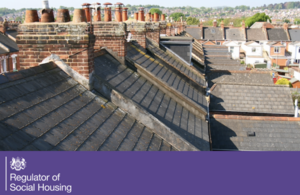RSH reports on financial trends in the social housing sector
The report shows that providers face substantial pressures and continue to operate within a very challenging and fast-moving economic environment.

The Regulator of Social Housing has today (1 June 2023) published the results of its latest quarterly survey of registered providers’ financial health.
The report, which provides the sector’s financial data for the past financial year, shows that providers face substantial pressures and continue to operate within a very challenging and fast-moving economic environment. High inflation, shortages in labour and materials, increasing borrowing costs, and higher spend on repairs and maintenance continue to impact on providers’ operating costs.
Providers invested £6.9 billion over the past year on repairs and maintenance, and expect to invest a further £7.9 billion over the next 12 months. This higher spend is a result of repairs relating to damp and mould, building safety works, investment in energy efficiency and inflationary pressures.
Higher interest rates and increasing investment in existing homes have reduced providers’ interest cover (excluding sales income), which averaged at 87% over the past financial year. This is the lowest figure recorded in the regulator’s quarterly surveys, and continues the trend of weakening interest cover as providers spend more on repairs. The regulator continues to monitor this trend, and it was a factor in many of the viability regrades in its recent stability checks of providers’ financial viability. The regulator expects boards to carefully manage their risks, particularly their headroom to comply with interest cover covenants.
Providers also continued to build and acquire new homes, with £13 billion invested over the past year (compared to £12.7 billion the year before). Providers expect to spend a further £16.8 billion on new homes over the next 12 months (of which £11.4 billion is contractually committed).
Despite these substantial financial pressures, the sector continues to have a strong liquidity position and attracted £9.9 billion in new finance, taking total agreed facilities to £123 billion. Undrawn facilities are at a historically high level and a large majority of debt is on fixed rate terms.
Jonathan Walters, Deputy Chief Executive of the Regulator of Social Housing, said:
Providers continue to face significant economic challenges, including high borrowing costs and inflation. Boards need to take a strategic approach to managing these risks, to ensure they can continue to deliver tenant services, increase repairs and maintenance, and invest in new homes.
The regulator’s quarterly surveys are available on its website.
Notes to editors
-
The quarterly survey provides a regular source of information about the financial health of private registered providers, in particular with regard to their liquidity position.
-
The quarterly survey returns summarised in the report cover the period from 1 January 2023 to 31 March 2023. The latest report is based on regulatory returns from 202 PRPs and PRP groups which own or manage more than 1,000 homes.
-
RSH promotes a viable, efficient and well-governed social housing sector able to deliver and maintain homes of appropriate quality that meet a range of needs. It does this by undertaking robust economic regulation focusing on governance, financial viability and value for money that maintains lender confidence and protects the taxpayer. It also sets consumer standards and may take action if these standards are breached and there is a significant risk of serious detriment to tenants or potential tenants.
-
For press office contact details, see our media enquiries page. For general queries, please email enquiries@rsh.gov.uk or call 0300 124 5225.
*[PRP] Private registered provider *[PRPs]: *[PRP] Private registered providers